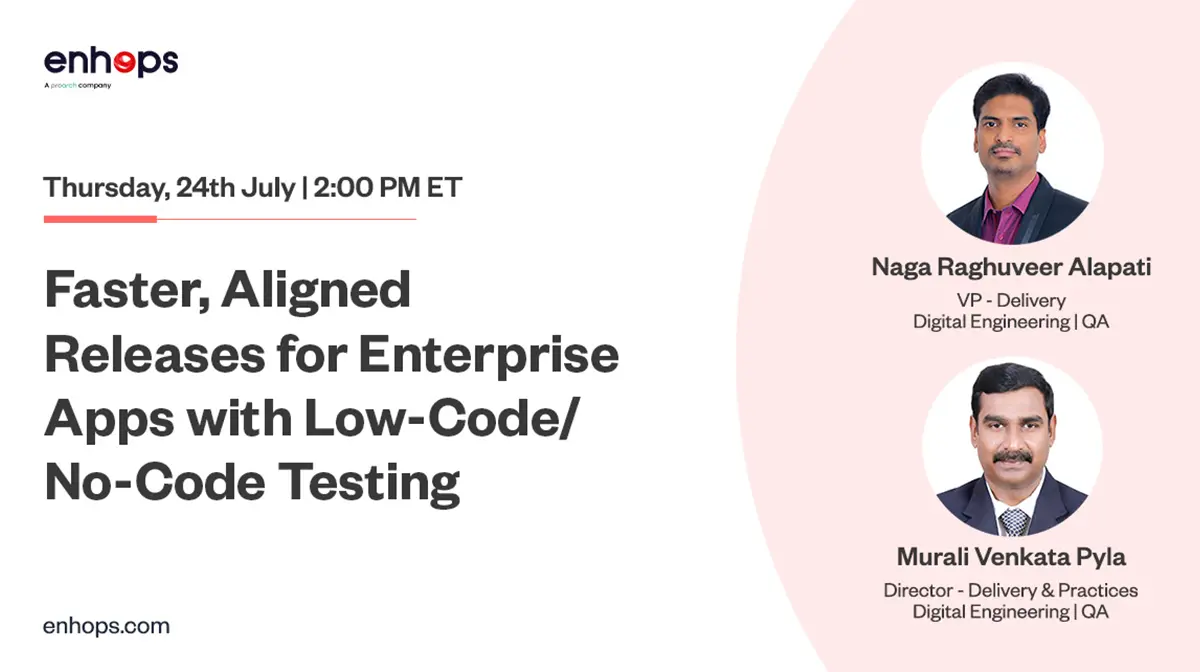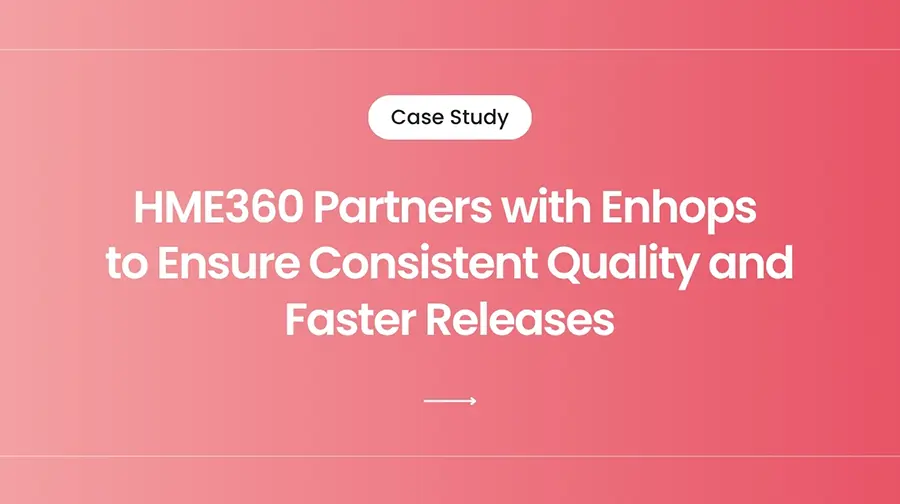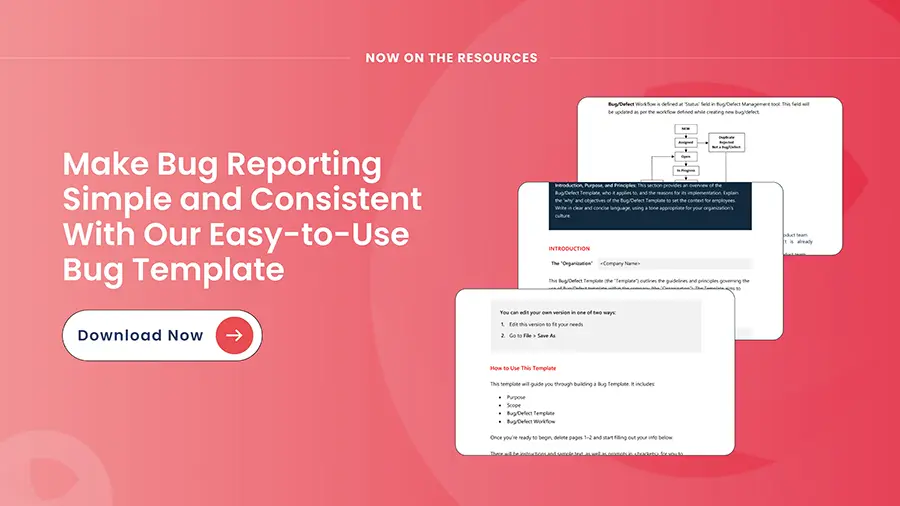Enterprise resource planning (ERP) systems are complicated programs built to meet technical and functional operations for organizations. Successful ERP implementation requires meeting business needs while managing costs and timelines, necessitating thorough testing of each release/feature/product enhancement. Due to the complexity and interdependence of requirements in ERP testing, automated AI driven testing has become an essential strategy for minimizing technical debt, stabilizing ERP systems, and enhancing return on investment (ROI). By streamlining testing processes, organizations can ensure consistent performance and reliability, ultimately driving greater efficiency and user satisfaction.
With these challenges, it is advisable to work with a specialist QA organization for your next ERP testing project. Here are some common questions we’ve heard from clients before starting their ERP projects with Enhops. To help you navigate vendor evaluation, here are 7 key questions you should ask—and why each matters.
1. What exactly do you mean by automated ERP testing?
Automated ERP testing is the process of automating testing function using specialized software tools to test an ERP system. It involves right combination of manual and automated testing to ensure right test coverage.
This approach significantly speeds up the testing process, identifies and remediates technical debts, and allows testers to test high-impact areas of application. Automated ERP testing is particularly valuable for complex systems with multiple modules, and frequent updates. Although it is powerful in terms of running different test cases quickly, it works in synergy with manual testing, especially for aspects requiring human interference like exploratory testing, user acceptance and visual checks.
2. Which approach yields more consistent outcomes in ERP testing: automated or manual?
Indeed, automated ERP testing typically offers greater reliability compared to manual testing.
While the core tests remain the same, automation leverages standardization to execute tests with greater precision and consistency, leading to faster feedback loops. This scales up test coverage and perform multiple tests together. Having said, that it works best in combination with manual testing.
3. What specific benefits can we expect from implementing automated ERP testing?
Some top benefits of ERP testing include:
- Reduction in execution time: Automated testing improves test efficiency by over 50% in most scenarios by standardizing processes.
- Reduction in technical debt: Test automation helps in identifying smelly codes and performance bottlenecks in legacy codes.
- Smarter test coverage: AI-driven testing analyzes application behavior to prioritize impactful tests and reduce maintenance overhead.
- Enhanced Security: Automated security tests help identify and fix vulnerabilities and preventing potential breaches.
- Seamless integration testing: Ensures smooth interaction between ERP and third-party applications.
- Data Integrity: As a part of test automation, data integrity testing ensures there is no data loss and duplication.
4. What challenges do we face when automating ERP testing? And how Enhops is perfectly placed to help us with these challenges?
Automating ERP testing brings significant benefits, but it comes with its own challenges. Some key challenges include:
- Complexity of ERP systems: ERP systems are highly complex, with dependencies, customizations, and legacy codes. This complexity makes it difficult to achieve comprehensive test coverage for all scenarios and integrations.
- Frequent updates and changes: ERP systems receive frequent updates. Maintaining and updating automated test scripts to keep pace with these changes can be time-consuming and resource intensive.
- Changing user interfaces: Many ERP systems feature dynamic user interfaces that adapt based on user roles or data inputs. This variability can complicate the creation of stable, reliable automated tests that function effectively across various scenarios.
- Data dependencies: ERP processes depend on specific data conditions, formats, and logic. Creating and maintaining test data that accurately reflects various business scenarios for automated testing can be complex.
- Integration complexity: Automating tests for integrations between the ERP and other business systems can be challenging due to the variety of interfaces and protocols involved
- AI-driven testing considerations: As ERP systems evolve, AI models used in testing can face challenges like model drift or inaccurate predictions. These models may require retraining and recalibration to stay effective.
Our ERP testing approach simplifies diverse enterprise software environments. We support major ERP systems and BI platforms, integrating seamless test automation within CI-CD pipelines for reliable delivery. With deep ERP expertise and global experience, we provide end-to-end services across the lifecycle – test solutions, implementation, rollouts, upgrades, reengineering, integration, and support.
Our PoC-backed approach provides an outcome-driven roadmap, recommending tools and frameworks for higher-quality deployments, efficiency, and ROI.
Enhops integrates AI-driven testing frameworks with traditional automation. This ensures test suites adapt intelligently to ERP changes, reduce maintenance effort, and deliver faster, more reliable outcomes.
5. What are the most common KPIs that improve with automated testing in ERP systems
Some of the KPIs for ERP test automation are:
- System Performance: Automated testing enhances the reliability and efficiency of the ERP system, leading to improved system availability and response times.
- Business Process Improvement: Automated testing streamlines workflows and reduces cycle times, resulting in more efficient business processes.
- Return on Investment (ROI): By minimizing errors and improving operational efficiency, automated testing contributes to a higher ROI from the ERP system.
- Reduced Downtime: Automated testing enables feedback loops and identify any issues before they impact end-users leading to stable systems.
- User Adoption Rate: With stable and improved systems, end-users adopt and interact with systems more because it makes their jobs easy.
- Frequent Updates: Automated testing allows for frequent updates to be implemented with minimal pressure.
- Improve Quality: Test automation enhances software testing metrics such as test coverage, defects per release, defect resolution time, and mean time to recovery.
- Test efficiency and effectiveness: AI-driven testing delivers smarter prioritization and reduces false positives, improving defect detection rate.
6. How long will it take for Enhops to set up an automated ERP testing process?
The time required to set up an automated ERP testing process can vary significantly, typically ranging from one to three months.
Enhops offers a risk-free and budget-friendly Proof of Concept (PoC) to demonstrate the value and potential timeline for your specific needs. Our four to six weeks engagement, led by automation experts, helps you get started with a test automation framework and suite tailored to your business objectives.
During this PoC, we offer:
- Assessment of your ERP system’s scope and complexity
- Evaluation of existing infrastructure and tools
- Develop automation suite and frameworks for identified test scenarios aligned with your business and software delivery objectives
- A detailed ROI analysis, assessing the tangible benefits of investing in test automation
This approach allows you to clearly see the potential return on your test automation investment before committing to a full implementation.
7. How much involvement is needed from our side? Who are the key stakeholders involved?
Quality is not a team-function but an organization-wide initiative. It is very important to have a hybrid of top-down and bottom-up approach for a successful ERP Test Automation program. For PoC, we require minimal involvement of key personnel from your side. Once we kickstart the engagement, involvement can be discussed based on application, engagement model, and other factors.
The exact structure of the QA team depends on the business’ size and its specific requirements, but some key roles to consider are:
- Project Manager: Manages all testing work and ensures the smooth implementation of a plan, the allocation of the required resources, and the timetable set up. She/He is the main point of contact between stakeholders and ensures the successful delivery of the project within the given budget.
- QA Manager: Takes care of the entire process of testing of each ERP module, by guiding testing strategy, supervising test case creation, and solving problems relating to defects. Engages other managers and engineers in aligning testing with project objectives.
- Test Automation Architect: Involves in design of the overall test automation strategy, determines the tools to be used and guides automation process for efficiency reasons.
- Test Automation Engineer: Builds and runs code for automated testing. Creating and validating the tests scripts against system requirements of ERP module.
- Manual Test Engineer: Executes manual test cases to certify the ERP system for business requirements.
With AI-driven in ERP testing: Get an edge over your competitors with Enhops
Selecting the right QA vendor for your automated ERP testing programme is not just about scripts and tool-kits—it’s about aligning on business goals, risk mitigation, ROI, and long-term quality. By asking the 7 questions above, you’ll be well-positioned to evaluate vendors critically and choose a partner that helps you stabilise your ERP system, reduce technical debt, and drive real-world value.
If you’d like to explore a risk-free Proof of Concept (PoC) to see how automation can accelerate your ERP testing journey, our team at Enhops is ready to help. Don’t wait—let’s optimise your ERP testing and keep you ahead in today’s competitive landscape.




